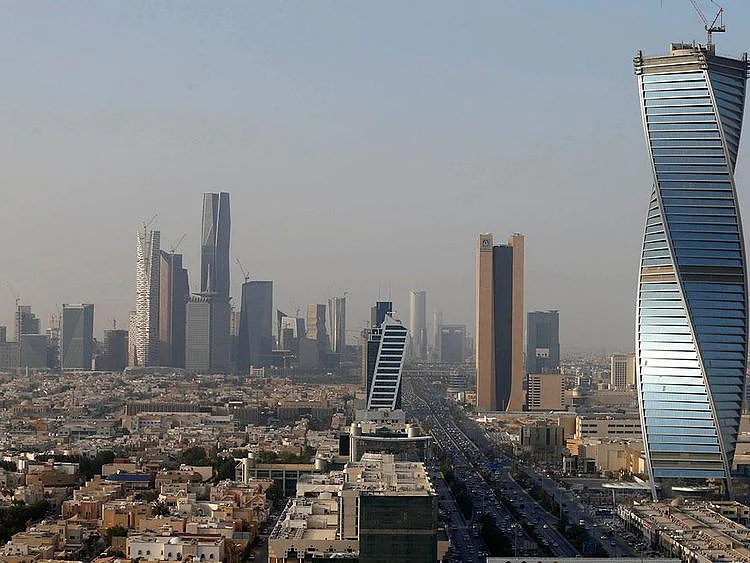Balancing tradition and entertainment in Saudi Arabia
A country that hosts Islam’s two holiest shrines has certain obligations and requirements

Last week a nightclub that had briefly opened in Jeddah was closed immediately for several violations. The US-based singer Ne-Yo was scheduled to perform at the club’s grand opening during the summer waterfront festival in Jeddah. He quickly posted, “Apologies to the people of Saudi Arabia. Was literally on my way to the venue when I heard it was shut down due to some technicality. Was looking forward to performing. Much love to my guys at White Jeddah. Maybe we try again some other time. Let me know.”
The club is a branch of the White brand, which also has clubs in Dubai and Beirut.
In carrying out the order to shut the club, Saudi Arabia’s General Entertainment Authority (GEA) said that the club did not receive the necessary licence to operate.
It stated that “According to information provided, the event was in violation of the legal procedure and regulations and was not authorised by the body. The GEA had originally issued a licence for another event. Its contractor then took advantage of an extension of that licence to commit these serious and unacceptable violations.”
Reacting to online videos of performances that took place in the venue a day before which showed men and women dancing in public, and other videos with patrons explaining the set-up of the club, with a ‘halal bar’ and ‘shisha’ that ranged from 370 to 500 riyals (Dh362-Dh490), the GEA announced the opening of an immediate investigation into the videos circulating online that showed the ongoings in the venue.
In their official Twitter account, the GEA explained that the club had not been authorised and was “an infringement of legitimate procedures.” It said it had consented to an alternate occasion and that the club operators had “exploited” an expansion of that permit to submit “inadmissible infringement”.
Public rebuke
They were undoubtedly referring to the inclusion of a dance floor and a bar alongside, not like bars in other countries that straddle dance floors and serve alcoholic beverages.
With an 18+ age limit for entry, this joint was indeed patterning itself to a similar joint in Beirut run by the same operator, the exception being the bar in Jeddah which served non-alcoholic drinks was quickly dubbed the ‘halal’ bar by many of the patrons who had made it through the doors before the club was shut down.
Naturally, the news of the event dominated local social media with many applauding the GEA’s decision to shut down the venue for non-conformance to local standards and traditions.
Said one Saudi, “We are not Beirut and neither do we want to be like that decadent plastic city. We have morals and values and do not want outsiders to come in and try to violate our sense of decency.”
Another was quick to point out that the club was eerily similar to those similar in the west with dance floors, loud music and the easy flow of alcohol. “Do we want that for our children? To load on them values that conflict with our beliefs. Dancing, night clubs now…what next?”
Many applauded the swift decision of the GEA. They felt it was the right thing to do in the face of what many said was an infringement of public decency.
The GEA in recent years has done a tremendous job in attracting talent from across the globe to come and entertain the locals. Their success has made a significant impact on local economies which are hosts to many of the attractions that bring in families to their fares.
Families that in the past used to escape to neighbouring lands to enjoy the attractions during summer holidays are finding a full plate of venues domestically, many of them of world-class stature to take their families to. This is a very family-oriented country with strong family bonds.
Unlike other countries in the region where the local population is sometimes dwarfed in numbers by the expatriate population, here the Saudis carry the numbers. It is therefore important to address their needs first and pattern venues to their approval.
Nightclubs and dance floors may be the norm in other countries, but a country that hosts Islam’s two holiest shrines has certain obligations and requirements. Operators wishing to exploit the tourist boom that is developing domestically must understand these basic tenets. The GEA has set rules and regulations to protect both the public and the operator, and such rules have to be followed.
— Tariq A. Al Maeena is a Saudi socio-political commentator. He lives in Jeddah, Saudi Arabia. Twitter: @talmaeena
Sign up for the Daily Briefing
Get the latest news and updates straight to your inbox
Network Links
GN StoreDownload our app
© Al Nisr Publishing LLC 2026. All rights reserved.